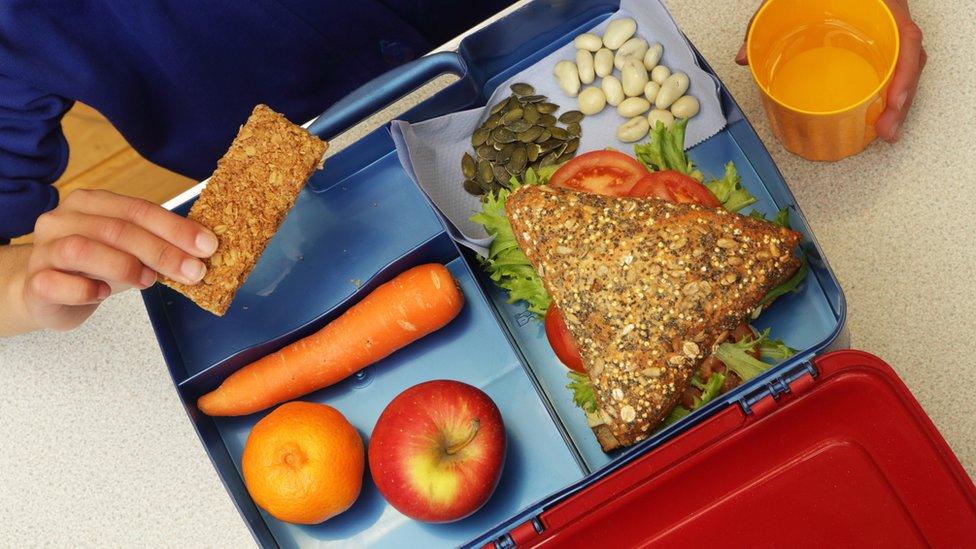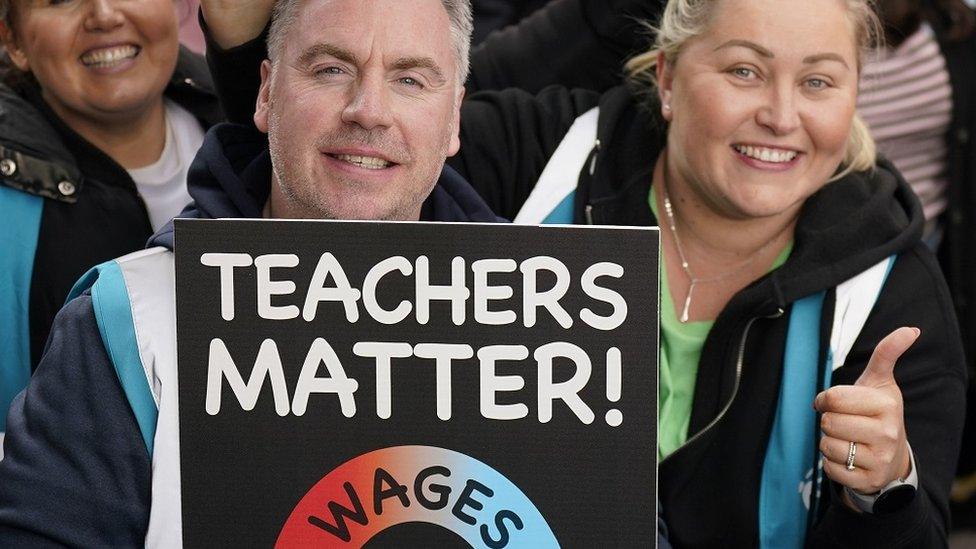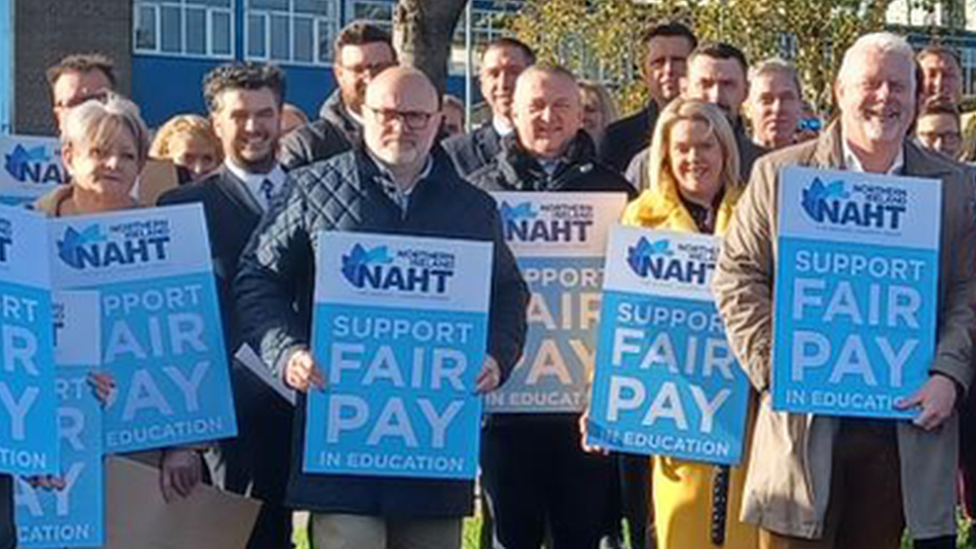NI Education: School staff strike to cause 'severe disruption'
- Published
- comments

Schools are likely to face severe disruption and some possible closures due to strike action by four big unions on Thursday 16 November.
Unison, Unite, the GMB and NIPSA represent thousands of non-teaching staff in education.
That includes bus drivers, school catering staff, classroom assistants, cleaners and other support workers.
The unions are taking the strike action over the failure to reform their pay and cuts to the education budget.
'Significant disruption'
They said that there had been a failure to implement a long-standing review that would lead to pay increases.
Unison, Unite and GMB members employed by the Education Authority (EA) will walk out for the full day on Thursday, while NIPSA members will strike for two hours after the start of their shifts.
Unite members working for the EA are also striking on Wednesday 15 November.
The Department of Education (DE) said it is continuing to engage with the EA on the content of the pay and grading business case to "ensure the proposals are fully justified and affordable".
A spokesperson added that the proposal put forward by the EA and trade unions has a significant cost associated with it.
The initial annual implementation cost for the EA would be £39m, with the subsequent recurring cost rising to £71m after three years, the department said.
"This would be in addition to any national NJC (National Joint Council) pay rise each year.
"However, there is currently no budget available to implement this without further funding being made available."
The EA said steps had been taken to identify the potential impact of this action on schools and services.
"We are taking steps to mitigate the impact of the action, however, due to the large number of staff anticipated to be involved in the planned action, we are expecting significant disruption," a spokesperson said.
They said this would be in areas such as EA home to school transport, school meals and cleaning services.
It will also have a "major impact on the availability of classroom assistants in schools".
'Draconian cuts'
Unite's regional officer Kieran Ellison has blamed the Department of Education for the action.
"Responsibility for this escalation in industrial action lies wholly with the obstructive behaviour of senior management at the Department of Education who have failed to act," he said in a statement.
"They have brought on this strike by failing to seek funding from the Department for Finance to deliver the pay and grading review."

The EA said school meals could be one of the areas affected
Unison's lead negotiator for education, Anne Speed, also said that it was time for a "fair reform" of pay.
"The draconian cuts to the education budget delivered by (Northern Ireland Secretary) Chris Heaton-Harris has not only obstructed settlement of this issue, these cuts have drastically reduced or eliminated support services to pupils," she said.
"Funding for education must not only be restored, it has to be increased."
'Ignored for too long'
The senior organiser of the GMB in Northern Ireland, Alan Perry, told BBC News NI the strike would have a huge impact on schools with "many if not all having to close".
"In the worst cost-of-living crisis, workers deserve decent pay," he said.
"Cleaners, cooks and classroom assistants along with all non-teaching roles do vital work for our children's education.
"They shouldn't be left wondering how they're going to pay their bills."
The assistant secretary of NIPSA, Alan Law, added there was "anger amongst education workers who feel that the true value of their contribution to the delivery of education has been ignored for too long".
"They resent being ignored, they are right to feel angry," he said.
Members of the unions are also taking action short of strike.

Teachers staged a walk out over pay in April
Separately, five teaching unions in Northern Ireland staged a strike in April over pay and are also currently taking action short of strike.
Teachers in Northern Ireland have not had a pay increase for nearly three years.
Many teachers in England, Scotland and Wales now earn thousands of pounds more than their counterparts in Northern Ireland at the same grade.
BBC News NI understands that the teaching unions in Northern Ireland are now considering further strikes but nothing is yet confirmed.
Related topics
- Published2 November 2023

- Published26 April 2023

- Published16 February 2022
